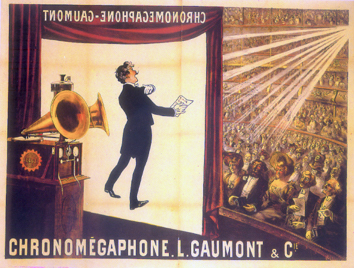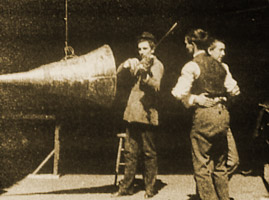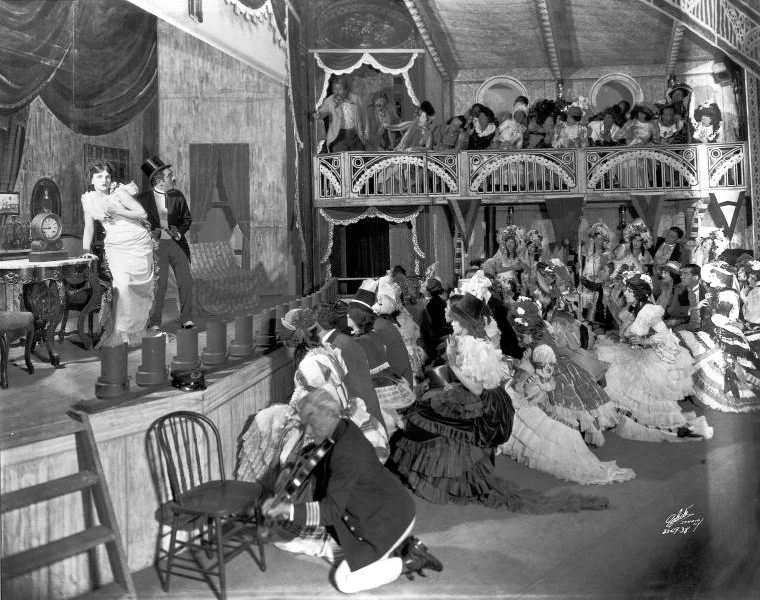|
The Jazz Singer
''The Jazz Singer'' is a 1927 American musical drama film directed by Alan Crosland. It is the first feature-length motion picture with both synchronized recorded music score as well as lip-synchronous singing and speech (in several isolated sequences). Its release heralded the commercial ascendance of sound films and effectively marked the end of the silent film era. It was produced by Warner Bros. with the Vitaphone sound-on-disc system and features six songs performed by Al Jolson. Based on the 1925 play of the same title by Samson Raphaelson, the plot was adapted from his short story "The Day of Atonement". The film depicts the fictional story of Jakie Rabinowitz, a young man who defies the traditions of his devout Jewish family. After singing popular tunes in a beer garden, he is punished by his father, a hazzan (cantor), prompting Jakie to run away from home. Some years later, now calling himself Jack Robin, he has become a talented jazz singer, performing in blackfa ... [...More Info...] [...Related Items...] OR: [Wikipedia] [Google] [Baidu] |
The Iron Mask
''The Iron Mask'' is a 1929 American part-talkie adventure film directed by Allan Dwan. It is an adaptation of the last section of the 1847-1850 novel ''The Vicomte de Bragelonne'' by Alexandre Dumas, père, which is itself based on the French legend of the Man in the Iron Mask. Cast *Douglas Fairbanks – D'Artagnan *Belle Bennett – The Queen Mother *Marguerite De La Motte – Constance Bonacieux *Dorothy Revier – Milady de Winter *Vera Lewis – Madame Peronne *Rolfe Sedan – Louis XIII *William Bakewell – Louis XIV/Twin Brother *Gordon Thorpe – Young Prince/Twin Brother *Nigel De Brulier – Cardinal Richelieu * Ullrich Haupt – Count De Rochefort *Lon Poff – Father Joseph: the Queen's Confessor * Charles Stevens – Planchet: D'Artagnan's Servant *Henry Otto – the King's Valet *Leon Bary – Athos *Tiny Sandford – Porthos (*Stanley J. Sandford) *Gino Corrado – Aramis Production background The 1929 part-talkie version, titled ''The Iron Mask'', was the first ... [...More Info...] [...Related Items...] OR: [Wikipedia] [Google] [Baidu] |
Show Boat (1929 Film)
''Show Boat'' is a 1929 American romantic drama film based on the 1926 novel ''Show Boat (novel), Show Boat'' by Edna Ferber. The film initially did not use the Show Boat, 1927 stage musical of the same name as a source, but scenes were later added into the film incorporating two of the songs from the musical as well as other songs. This version was released by Universal Studios, Universal in two editions, one a silent film for movie theatres still not equipped for sound, and one a part-talkie with a sound prologue. The film was long believed to be lost, but most of it has been found and released on LaserDisc and shown on Turner Classic Movies. A number of sections of the soundtrack were found in the mid-1990s on Vitaphone records, although the film was made with a Movietone sound system, Movietone soundtrack. Two more records were discovered in 2005. Plot The eighteen-year-old Magnolia meets, falls in love with, and elopes with riverboat gambler Gaylord Ravenal. After her ... [...More Info...] [...Related Items...] OR: [Wikipedia] [Google] [Baidu] |
Universal Pictures
Universal Pictures (legally Universal City Studios LLC, also known as Universal Studios, or simply Universal; common metonym: Uni, and formerly named Universal Film Manufacturing Company and Universal-International Pictures Inc.) is an American film production and distribution company owned by Comcast through the NBCUniversal Film and Entertainment division of NBCUniversal. Founded in 1912 by Carl Laemmle, Mark Dintenfass, Charles O. Baumann, Adam Kessel, Pat Powers, William Swanson, David Horsley, Robert H. Cochrane, and Jules Brulatour, Universal is the oldest surviving film studio in the United States; the world's fifth oldest after Gaumont, Pathé, Titanus, and Nordisk Film; and the oldest member of Hollywood's "Big Five" studios in terms of the overall film market. Its studios are located in Universal City, California, and its corporate offices are located in New York City. In 1962, the studio was acquired by MCA, which was re-launched as NBCUniversal in 2004. ... [...More Info...] [...Related Items...] OR: [Wikipedia] [Google] [Baidu] |
Modern Times (film)
''Modern Times'' is a 1936 American part-talkie satirical romantic black comedy film written and directed by Charlie Chaplin in which his iconic Little Tramp character struggles to survive in the modern, industrialized world. The film is a commentary on the desperate employment and financial conditions many people faced during the Great Depression — conditions created, in Chaplin's view, by the efficiencies of modern industrialization. The movie stars Chaplin, Paulette Goddard, Henry Bergman, Tiny Sandford and Chester Conklin. It is notable for being the last time that Chaplin portrayed the Tramp character and for being the first time Chaplin's voice is heard on film. In 1989, ''Modern Times'' was one of the first 25 films selected by the Library of Congress for preservation in the United States National Film Registry for being "culturally, historically, or aesthetically significant". In 2003, it was screened "out of competition" at the Cannes Film Festival. Plot The Tramp ... [...More Info...] [...Related Items...] OR: [Wikipedia] [Google] [Baidu] |
The Phantom Of The Opera (1925 Film)
''The Phantom of the Opera'' is a 1925 American silent horror film adaptation of Gaston Leroux's 1910 novel ''Le Fantôme de l'Opéra'', directed by Rupert Julian and starring Lon Chaney in the title role of the deformed Phantom who haunts the Paris Opera House, causing murder and mayhem in an attempt to make the woman he loves a star. The film remains most famous for Chaney's ghastly, self-devised make-up, which was kept a studio secret until the film's premiere. The picture also features Mary Philbin, Norman Kerry, Arthur Edmund Carewe, Gibson Gowland, John St. Polis and Snitz Edwards. The last surviving cast member was Carla Laemmle (died 2014), niece of producer Carl Laemmle, who played a small role as a "prima ballerina" in the film when she was about 15 years old. The film was released on September 6, 1925, premiering at the Astor Theatre in New York. The film's final budget was $632,357. In 1953, the film entered the List of films in the public domain in the United Sta ... [...More Info...] [...Related Items...] OR: [Wikipedia] [Google] [Baidu] |
Sound Film
A sound film is a motion picture with synchronized sound, or sound technologically coupled to image, as opposed to a silent film. The first known public exhibition of projected sound films took place in Paris in 1900, but decades passed before sound motion pictures became commercially practical. Reliable synchronization was difficult to achieve with the early sound-on-disc systems, and amplification and recording quality were also inadequate. Innovations in sound-on-film led to the first commercial screening of short motion pictures using the technology, which took place in 1923. The primary steps in the commercialization of sound cinema were taken in the mid-to-late 1920s. At first, the sound films which included synchronized dialogue, known as "talking pictures", or "talkies", were exclusively shorts. The earliest feature-length movies with recorded sound included only music and effects. The first feature film originally presented as a talkie (although it had only limited so ... [...More Info...] [...Related Items...] OR: [Wikipedia] [Google] [Baidu] |
The Singing Fool
''The Singing Fool'' is a 1928 American musical drama part-talkie motion picture directed by Lloyd Bacon which was released by Warner Bros. The film stars Al Jolson and is a follow-up to his previous film, ''The Jazz Singer''. It is credited with helping to cement the popularity of American films of both sound and the musical genre. Plot After years of hopeful struggle, Al Stone (Jolson) is on his way to stardom. He plays a blackface minstrel. "I'm Sittin' on Top of the World", he sings to an appreciative speakeasy crowd. But, as Al discovers, getting there is one thing. Staying there is another. Singing waiter Stone gets his huge break on a magical night when his song wows a big-time producer ''and'' a gold-digging showgirl he fancies. Broadway success and marriage follow, but sure enough, hard times are on the way. Al's fickle wife abandons him, taking the beloved son he calls Sonny Boy with her. Heartbroken, Al becomes a devastated loner until friends from the speakeasy t ... [...More Info...] [...Related Items...] OR: [Wikipedia] [Google] [Baidu] |
Lonesome (1928 Film)
''Lonesome'' is a 1928 American comedy drama part-talkie film directed by Paul Fejös, and starring Barbara Kent and Glenn Tryon. Its plot follows two working-class residents of New York City over a 24-hour-period, during which they have a chance meeting at Coney Island during the Independence Day weekend and swiftly fall in love with one another. It was produced and distributed by Universal Pictures. In 2010, it was selected for preservation in the United States National Film Registry by the Library of Congress as being "culturally, historically, or aesthetically significant". The film was released on Blu-ray disc and DVD on August 28, 2012, as part of the Criterion Collection. It was remade in 1935 as a comedy called ''The Affair of Susan''. Plot In New York City, Mary is a telephone operator who lives alone and is lonely. Jim is a factory worker who also lives alone, and feels disconnected from the world. During the Independence Day weekend, both Mary and Jim decide to vi ... [...More Info...] [...Related Items...] OR: [Wikipedia] [Google] [Baidu] |
Sound Film
A sound film is a motion picture with synchronized sound, or sound technologically coupled to image, as opposed to a silent film. The first known public exhibition of projected sound films took place in Paris in 1900, but decades passed before sound motion pictures became commercially practical. Reliable synchronization was difficult to achieve with the early sound-on-disc systems, and amplification and recording quality were also inadequate. Innovations in sound-on-film led to the first commercial screening of short motion pictures using the technology, which took place in 1923. The primary steps in the commercialization of sound cinema were taken in the mid-to-late 1920s. At first, the sound films which included synchronized dialogue, known as "talking pictures", or "talkies", were exclusively shorts. The earliest feature-length movies with recorded sound included only music and effects. The first feature film originally presented as a talkie (although it had only limited so ... [...More Info...] [...Related Items...] OR: [Wikipedia] [Google] [Baidu] |
The Artist (film)
''The Artist'' is a 2011 French comedy-drama film in the style of a black-and-white silent film or part-talkie. The film was written and directed by Michel Hazanavicius, produced by Thomas Langmann and stars Jean Dujardin and Bérénice Bejo. The story takes place in Hollywood, between 1927 and 1932, and focuses on the relationship between a rising young actress and an older silent film star as silent cinema falls out of fashion and is replaced by the "talkies". ''The Artist'' received widespread critical acclaim and won many accolades. Dujardin won Best Actor at the 2011 Cannes Film Festival, where the film premiered. The film was nominated for six Golden Globes, the most of any 2011 film, and won three: Best Motion Picture – Musical or Comedy, Best Original Score, and Best Actor – Motion Picture Musical or Comedy for Dujardin. In January 2012, the film was nominated for twelve BAFTAs, the most of any film from 2011, and won seven, including Best Film, Best Di ... [...More Info...] [...Related Items...] OR: [Wikipedia] [Google] [Baidu] |
Show Boat
''Show Boat'' is a musical with music by Jerome Kern and book and lyrics by Oscar Hammerstein II. It is based on Edna Ferber's best-selling 1926 novel of the same name. The musical follows the lives of the performers, stagehands and dock workers on the ''Cotton Blossom'', a Mississippi River show boat, over 40 years from 1887 to 1927. Its themes include racial prejudice and tragic, enduring love. The musical contributed such classic songs as "Ol' Man River", " Make Believe", and " Can't Help Lovin' Dat Man". The musical was first produced in 1927 by Florenz Ziegfeld. The premiere of ''Show Boat'' on Broadway was an important event in the history of American musical theatre. It "was a radical departure in musical storytelling, marrying spectacle with seriousness", compared with the trivial and unrealistic operettas, light musical comedies and "Follies"-type musical revues that defined Broadway in the 1890s and early 20th century. According to ''The Complete Book of Light Opera ... [...More Info...] [...Related Items...] OR: [Wikipedia] [Google] [Baidu] |
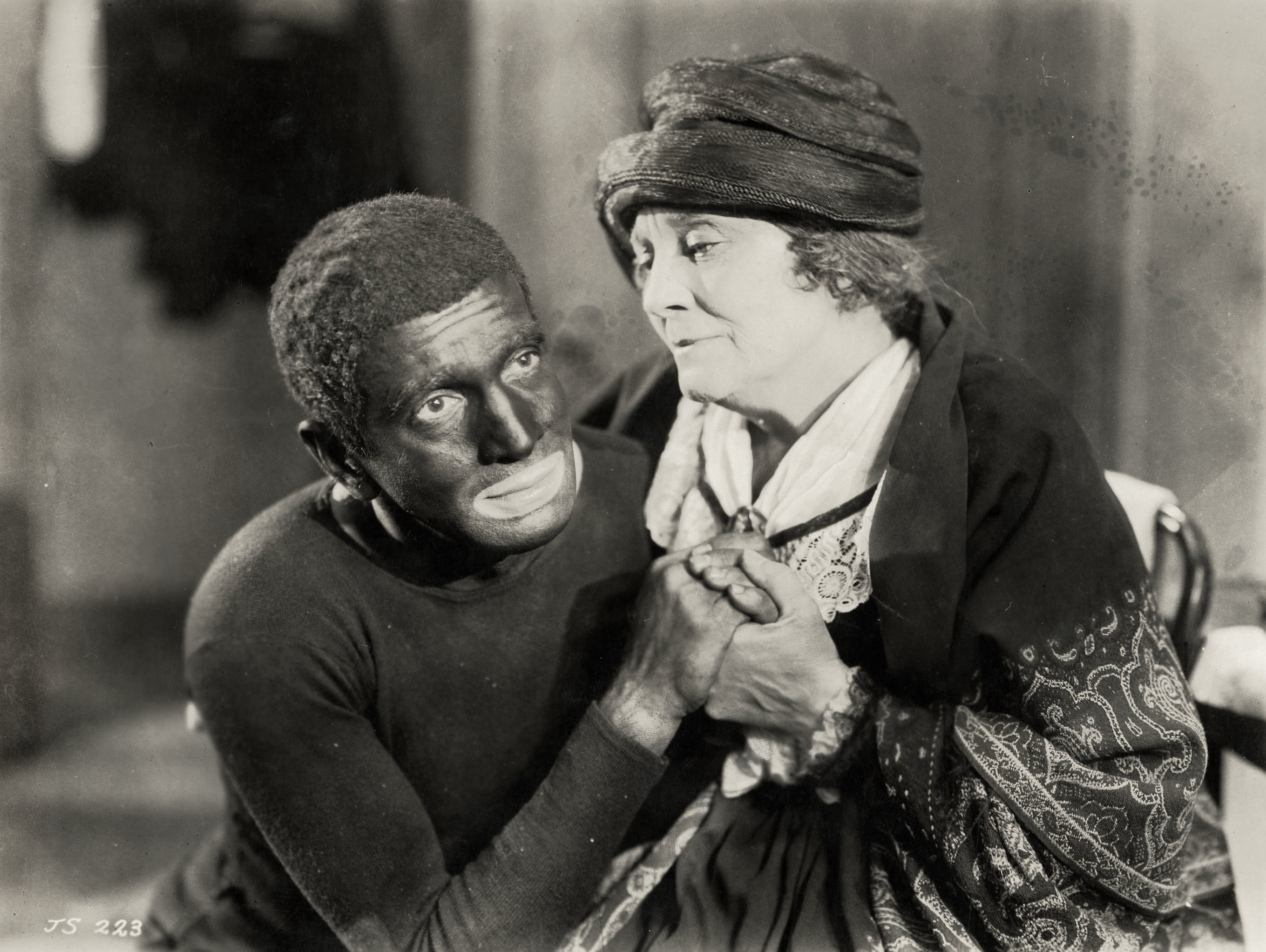
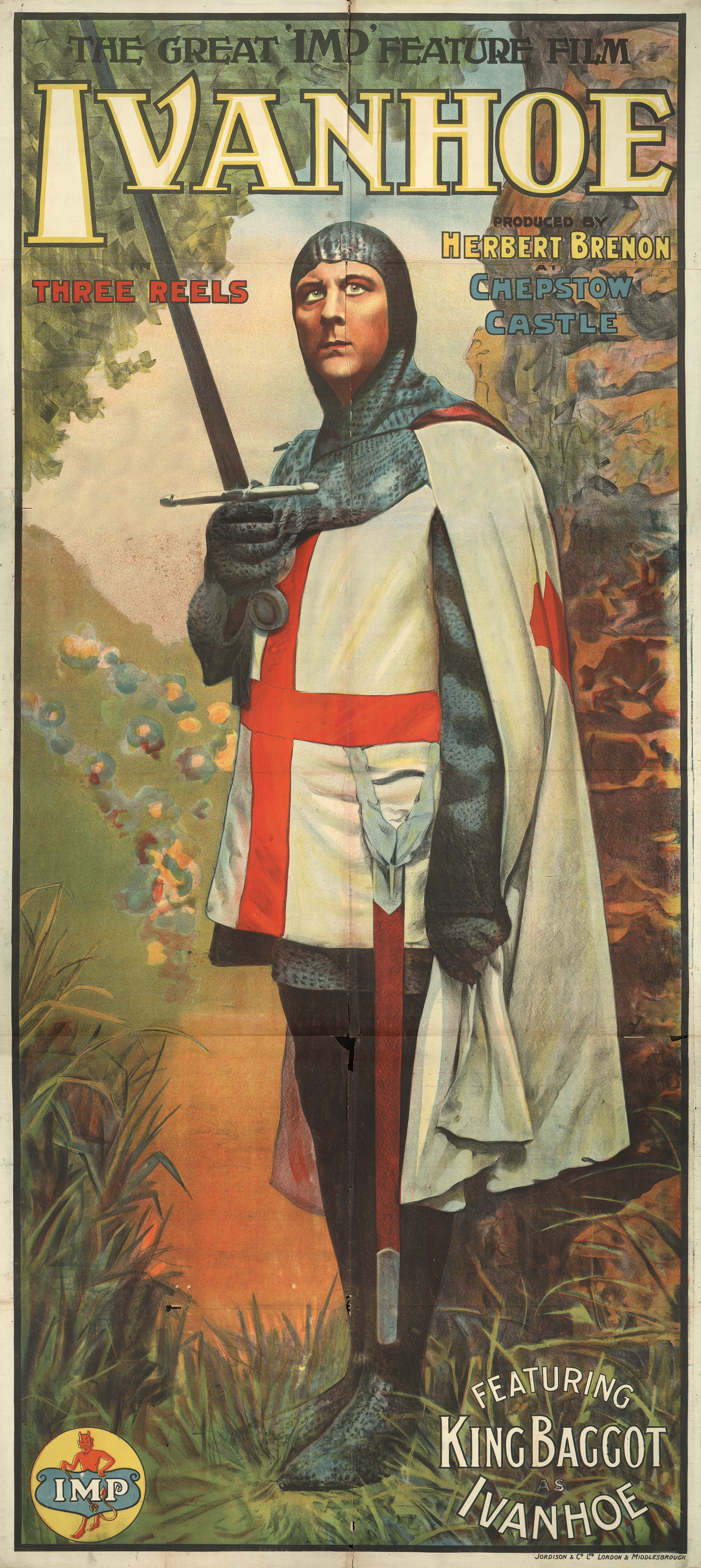
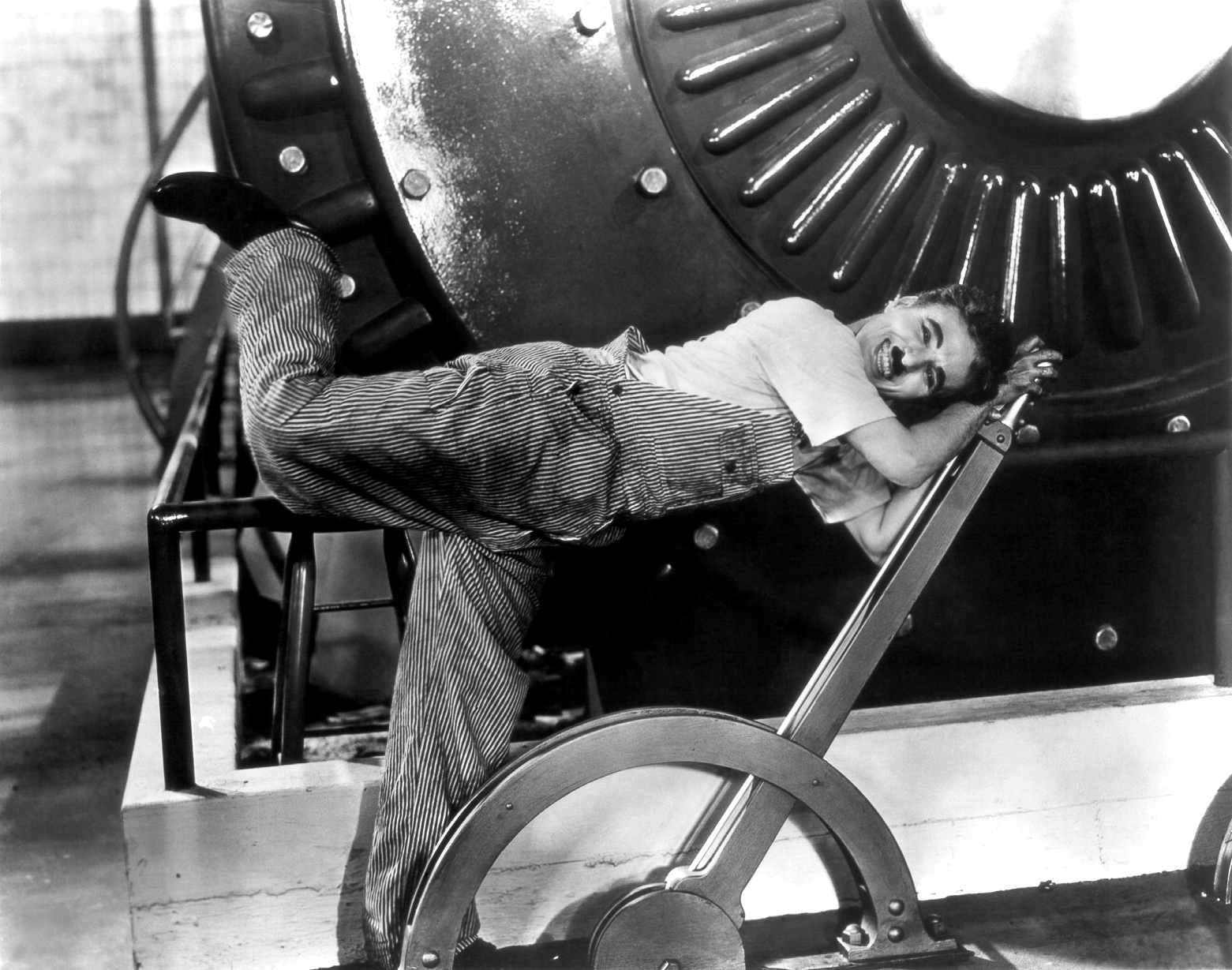
_still.jpg)
